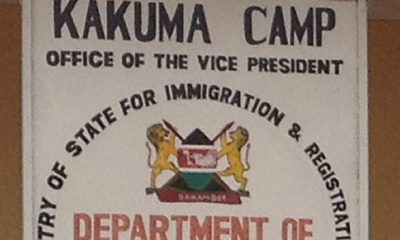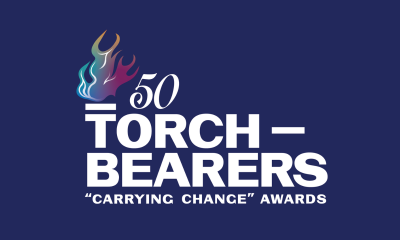Africa
Ugandan activist blames anti-LGBTQ politicians, religious leaders for stabbing
Steven Kabuye attacked outside home on Jan. 3
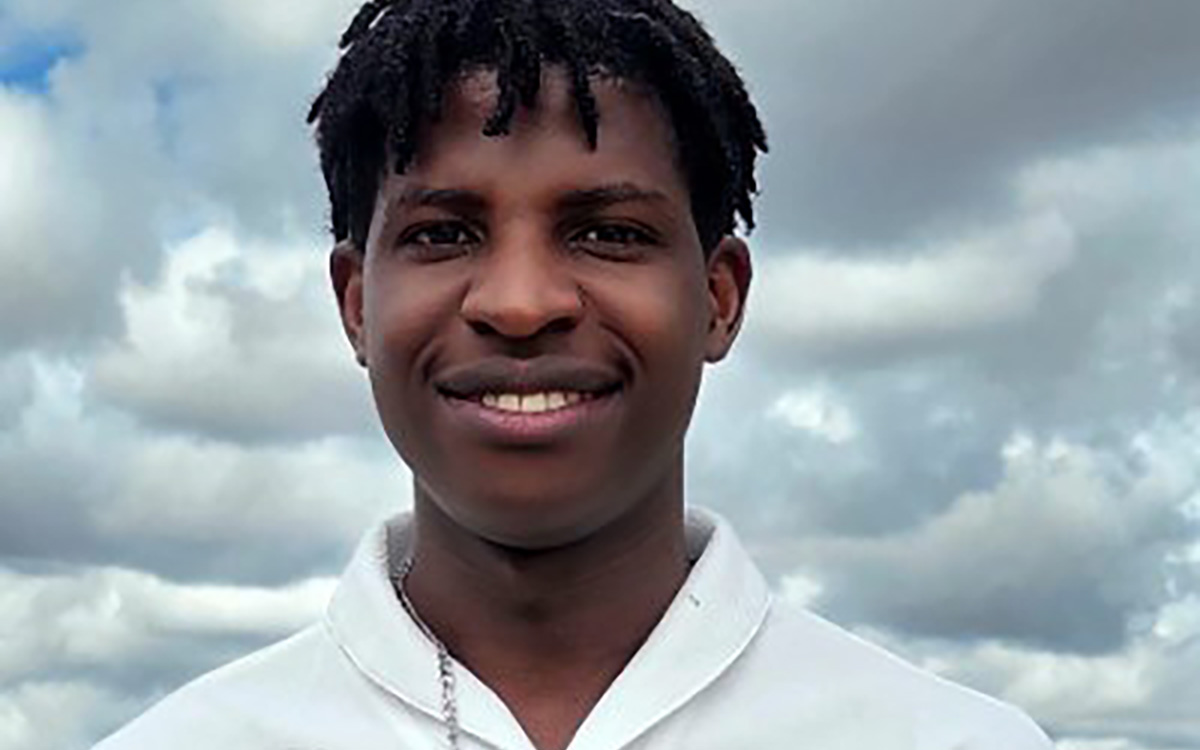
A prominent Ugandan activist who was stabbed last week said politicians and religious leaders who are stoking anti-LGBTQ sentiments in the country are responsible for the attack.
“The situation in the country where our politicians and religious leaders, people are calling for the death of LGBTQI+ (community) members in Uganda has led to people to think it’s okay to kill someone just because he’s different, just because he was born different,” Steven Kabuye told the Washington Blade on Monday during a telephone interview.
Kabuye is the co-executive director of Coloured Voice Truth to LGBTQ Uganda.
He told the Blade that two men on motorcycles who were wearing helmets attacked him near his home on Jan. 3 while he was going to work. Kabuye said one of the men stabbed him while the other remained on the motorcycle.
“I don’t know who tried to end my life,” he said.
Kabuye posted a video to his X account that showed him on the ground writhing in pain with a deep laceration on his right forearm and a knife embedded in his stomach.
Paramedics brought Kabuye to the hospital after his roommate found him. Kabuye on Saturday left Uganda in order to receive additional treatment outside of the country.
Kabuye did not identify the country from which he spoke to the Blade.
“I left the country because my security couldn’t be guaranteed,” he said, noting the doctors who were treating him in Uganda received threatening phone calls. Kabuye also said Ugandan authorities did not allow journalists to interview him at the hospital. “It put my security at risk, and it was recommended I should move outside of the country to get more treatment … for my own safety.”
The stabbing took place less than seven months after Ugandan President Yoweri Museveni signed his country’s Anti-Homosexuality Act, which contains a death penalty provision for “aggravated homosexuality.”
The State Department a few weeks after the Anti-Homosexuality Act took effect announced visa restrictions against unnamed Ugandan officials. The World Bank Group later announced the suspension of new loans to Uganda.
The Biden-Harris administration has removed Uganda from a program that allows sub-Saharan African countries to trade duty-free with the U.S. and has issued a business advisory for the country over the Anti-Homosexuality Act. Secretary of State Antony Blinken last month announced sanctions against current and former Ugandan officials who committed human rights abuses against LGBTQ people and other groups.
Uganda’s Constitutional Court on Dec. 18 heard arguments in a lawsuit that challenges the Anti-Homosexuality Act.
Kabuye said he had received death threats online before the attack “because of the work I do,” and added he continues to receive them.
“According to what was transpiring on the internet, the death threats and everything and what transpired after that video went viral on Twitter really shows that the people who wanted to end my life wanted to end my life because of my sexuality,” said Kabuye.
Kabuye told the Blade a police spokesperson concluded he “stabbed myself” after authorities took a report from him.
A State Department spokesperson last week in a statement to the Blade urged the Ugandan government to investigate Kabuye’s stabbing and prosecute those who perpetrated it. Kabuye told the Blade the U.S. Embassy in Uganda asked for his phone number, but American officials have yet to reach out to him directly.
Republican Michigan Congressman Tim Walberg last October defended the Anti-Homosexuality Act in a speech he gave at Uganda’s National Prayer Breakfast. The Young Turks reported Museveni is among those who attended the event.
The Blade asked Kabuye about Walberg and his defense of the Anti-Homosexuality Act.
“If it wasn’t for these people, the evangelists that have been flocking in Uganda preaching their anti-gay agenda all over the country, funding the Anti-Homosexuality Act 2023, this wouldn’t have happened,” said Kabuye, referring to the stabbing.
‘I’m going to come back stronger’
Kabuye said he lost “a lot of blood” when the men stabbed him, but he remains hopeful that he will recover. A fund has also been established in order to help Kabuye pay for his treatment.
“I can barely stand or sit for more than five minutes, but the doctors say I’ll be fine as time moves on as I continue my medication,” Kabuye told the Blade.
Kabuye said he plans to return to Uganda once he recovers.
“Even though it’s not safe for me, that’s where my home is and that’s where I should return,” he said.
Kabuye added the stabbing “will just make me stronger.”
“This really showed that what I’m doing is putting up an impact on the society,” he said. “That’s why they are scared of me. That’s why they want to end my life.”
“This really shows that yes, Steven, the little work you’ve done is seen out there and we are in fear that the more you continue doing this work, the more you’re going to win your freedom,” added Kabuye. “I’m not going to back down and I’m going to continue with my activism the moment I’m back on my feet and I’m going to come back stronger.”
Egypt
Iran, Egypt object to playing in Seattle World Cup ‘Pride Match’
Game to take place on June 26

Iran and Egypt have objected to playing in a “Pride Match” that will take place in Seattle during the 2026 World Cup.
The Egyptian Football Association on Tuesday said it told FIFA Secretary General Mattias Grafström in a letter that “it categorically rejects holding any activities related to supporting (homosexuality) during the match between the Egyptian national team and Iran, scheduled to be held in Seattle, USA, on June 26, 2026, in the third round of the group stage of the 2026 World Cup.” Football Federation Islamic Republic of Iran President Mehdi Taj told ISNA, a semi-official Iranian news agency that both his country and Egypt “protested this issue.”
The 2026 World Cup will take place in the U.S., Canada, and Mexico. The draw took place at the Kennedy Center on Dec. 5.
Iran is among the handful of countries in which consensual same-sex sexual relations remain punishable by death.
The State Department’s 2023 human rights report notes that while Egyptian law “did not explicitly criminalize consensual same-sex sexual activity, authorities regularly arrested and prosecuted LGBTQI+ persons on charges including ‘debauchery,’ prostitution, and ‘violating family values.’” Egyptian authorities “also reportedly prosecuted LGBTQI+ individuals for ‘misuse of social media.’”
“This resulted in de facto criminalization of same-sex conduct and identity,” notes the report.
The 2024 human rights report the State Department released earlier this year did not include LGBTQ-specific references.
Soccer has ‘unique power to unite people across borders, cultures, and beliefs’
The June 26 match between Iran and Egypt coincides with Seattle Pride. The Washington Post reported the Seattle FIFA World Cup 2026 Local Organizing Committee decided to hold the “Pride Match” before last week’s draw.
“As the Local Organizing Committee, SeattleFWC26’s role is to prepare our city to host the matches and manage the city experience outside of Seattle Stadium,” said SeattleFWC26 Vice President of Communications Hana Tadesse in a statement the committee sent to the Washington Blade on Wednesday. “SeattleFWC26 is moving forward as planned with our community programming outside the stadium during Pride weekend and throughout the tournament, partnering with LGBTQ+ leaders, artists, and business owners to elevate existing Pride celebrations across Washington.”
“Football has a unique power to unite people across borders, cultures, and beliefs,” added Tadeese. “The Pacific Northwest is home to one of the nation’s largest Iranian-American communities, a thriving Egyptian diaspora, and rich communities representing all nations we’re hosting in Seattle. We’re committed to ensuring all residents and visitors experience the warmth, respect, and dignity that defines our region.”
The 2034 World Cup will take place in Saudi Arabia.
Consensual same-sex sexual relations remain punishable by death in the country. The 2022 World Cup took place in neighboring Qatar, despite concerns over the country’s anti-LGBTQ rights record.
Eswatini
PEPFAR delivers first doses of groundbreaking HIV prevention drug to two African countries
Lenacapavir now available in Eswatini and Zambia.
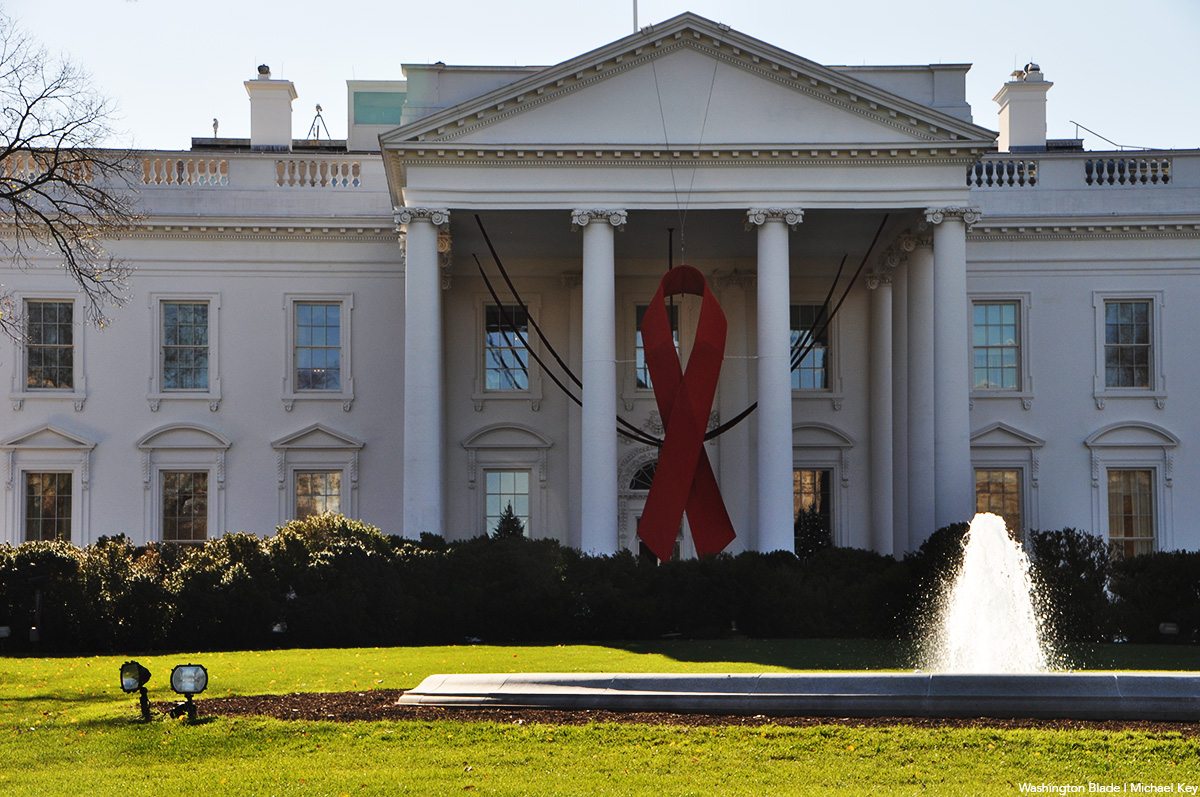
The State Department on Tuesday announced PEPFAR has delivered the first doses of a groundbreaking HIV prevention drug to two African countries.
The lenacapavir doses arrived in Eswatini and Zambia.
The State Department in September unveiled an initiative with Gilead Sciences to bring lenacapavir “to market in high-burden HIV countries.”
Lenacapavir users inject the drug twice a year.
The State Department in its September announcement noted everyone who participated in Gilead’s clinical trials remained HIV negative. It also said lenacapavir “has the potential to be particularly helpful for pregnant and breastfeeding mothers, as it safely protects them during and after pregnancy to prevent mother-to-child transmission.”
“In our new America First Global Health Strategy, the Department of State is establishing a first-of-its-kind innovation fund to support American-led research, market-shaping, and other dynamic advancements in global health,” said PEPFAR on Tuesday in a press release.
“The arrivals of the first doses of lenacapavir in Eswatini and Zambia mark an important milestone in HIV prevention and reflect our commitment to supporting communities with the greatest need,” added Gilead CEO Daniel O’Day. “For the first time, a new HIV medicine is reaching communities in sub-Saharan Africa in the same year as its U.S. approval.”
The September announcement came against the backdrop of widespread criticism over the Trump-Vance administration’s reported plans to not fully fund PEPFAR and to cut domestic HIV/AIDS funding. The Washington Blade has previously reported PEPFAR-funded programs in Kenya and other African countries have been forced to curtail services or even close because of U.S. funding cuts.
Botswana
The first courageous annual Palapye Pride in Botswana
Celebration was a beginning rooted in courage, community, and love.
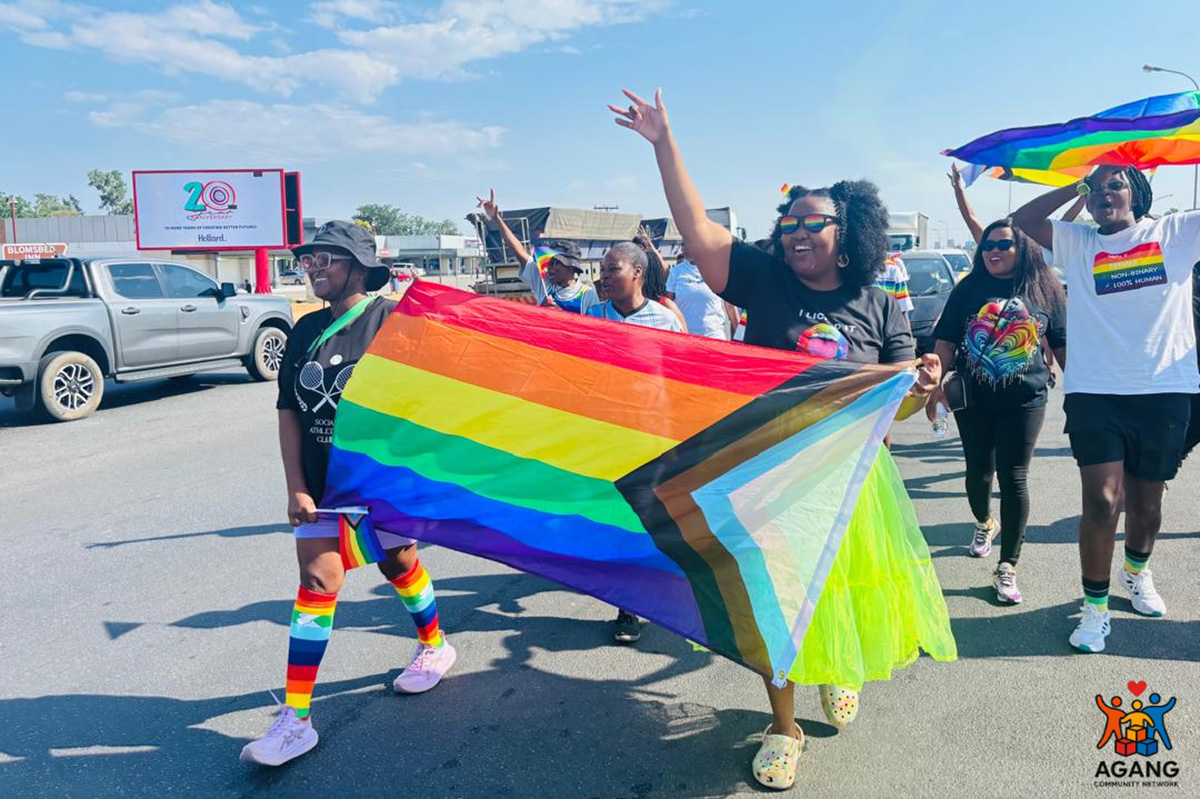
“When the sun rose on 1 Nov., 2025, Pride morning in Palapye, the open space where the march was scheduled to begin was empty. I stood there trying to look calm, but inside, my chest felt tight. I was worried that no one would come. It was the first-ever Pride in Palapye, a semi-urban village where cultural norms, religious beliefs, and tradition are deeply woven into everyday life.
I kept asking myself if we were being naive. Maybe people weren’t ready. Perhaps fear was going to win. For the first 30 minutes, it was me, a couple of religious leaders and a handful of parents. That was it. The silence was loud, and every second felt like it stretched into hours. I expected to see the queer community showing up in numbers, draped in color and excitement. Instead, only the wind was moving.
But slowly, gently, just like courage often arrives, people started to show up with a rainbow flag appearing from behind a tree and a hesitant wave from someone standing at a distance.
That’s when I understood that people weren’t late, just that they were afraid. And their fear made sense. Showing up openly in a small community like Palapye is a radical act. It disrupts silence. It challenges norms. It forces visibility. Visibility is powerful, but it is never easy. We marched with courage, pulling from the deepest parts of ourselves. We marched with laughter that cracked through the tension. We marched not because it was easy, but because it was necessary,” narrates activist Seipone Boitshwarelo from AGANG Community Network, which focuses on families and friends of LGBTIQ+ people in Botswana. She is also a BW PRIDE Awards nominee for the Healing and Justice Award, a category which acknowledges contributions to wellness, mental health, and healing for the LGBTIQ+ community across Botswana.
Queer Pride is Botswana Pride!
Pride is both a celebration and a political statement. It came about as a response to systemic oppression, particularly the criminalization and marginalization of LGBTIQ+ people globally, including in Botswana at some point. It is part of the recognition, equality, and assertion of human rights. It also reminds us that liberation and equality are not automatically universal, and continued activism is necessary. A reminder of the famous saying by Fannie Lou Hamer, “Nobody is free until everybody’s free.”
The 2023 Constitutional Review process made one thing evident, which is that Botswana still struggles to acknowledge the existence of LGBTIQ+ people as full citizens. Instead of creating a democratic space for every voice, the process sidelined and erased an entire community. In Bradley Fortuin’s analysis of the Constitutional review and its final report, he highlighted how this erasure directly contradicts past court decisions that explicitly affirmed the right of LGBTIQ+ people to participate fully and openly in civic life. When the state chooses to ignore court orders and ignore communities, it becomes clear that visibility must be reclaimed through alternative means. This is why AGANG Community Network embarked on Palapye Pride. It is a radical insistence on belonging, rooted in community and strengthened through intersectionality with families, friends, and allies who refuse to let our stories be erased.
Motho ke motho ka batho!
One of the most strategic decisions made by the AGANG Community Network was to engage parents, religious leaders, and local community members, recognizing their value in inclusion and support. Thus, their presence in the march was not symbolic, but it was intentional.
Funding for human rights and LGBTIQ+ advocacy has been negatively impacted since January 2025, and current funding is highly competitive, uneven and scarce, especially for grassroots organizations in Botswana. The Palapye Pride event was not funded, but community members still showed up and donated water, a sound system, and someone even printed materials. This event happened because individuals believed in its value and essence. It was a reminder that activism is not always measured in budgets but in willingness and that “motho ke motho ka batho!” (“A person is a person because of other people!”).
Freedom of association for all
In March 2016, in the the Attorney General of Botswana v. Rammoge and 19 Others case, also known as the LEGABIBO registration case, the Botswana Court of Appeal stated that “members of the gay, lesbian, and transgender community, although no doubt a small minority, and unacceptable to some on religious or other grounds, form part of the rich diversity of any nation and are fully entitled in Botswana, as in any other progressive state, to the constitutional protection of their dignity.” Freedom of association, assembly, and expression is a foundation for civic and democratic participation, as it allows all citizens to organize around shared interests, raise their collective voice, and influence societal and cultural change, as well as legislative reform.
The Botswana courts, shortly after in 2021, declared that criminalizing same-sex sexual relations is unconstitutional because they violated rights to privacy, liberty, dignity, equality, and nondiscrimination. Despite these legal wins, social stigma, cultural, and religious opposition continue to affect the daily lived experience of LGBTIQ+ people in Botswana.
The continuation of a declaration
AGANG Community Network is committed to continuing this work and creating safe and supportive spaces for LGBTIQ+ people, their families, friend, and allies. Pride is not just a day of fun. It is a movement, a declaration of queer existence and recognition of allyship. It is healing and reconciliation while amplifying queer joy.
Seipone Boitshwarelo is a feminist, activist, social justice healer, and founder of AGANG Community Network. Bradley Fortuin is a social justice activist and a consultant at the Southern Africa Litigation Center.
-

 U.S. Supreme Court5 days ago
U.S. Supreme Court5 days agoSupreme Court hears arguments in two critical cases on trans sports bans
-

 Virginia5 days ago
Virginia5 days agoWoman arrested for anti-gay assault at Alexandria supermarket
-

 District of Columbia4 days ago
District of Columbia4 days agoRuby Corado sentenced to 33 months in prison
-

 Commentary5 days ago
Commentary5 days agoHonoring 50 queer, trans women with inaugural ‘Carrying Change’ awards

